Are your middle schoolers struggling with time management and organization?
You’re not alone!
Navigating the challenges of adolescence, plus juggling academics and extracurricular activities can be overwhelming for young students.
Fortunately, there are some simple strategies to help equip children with necessary skills needed to get ahead—and stay organized along the way.
Setting a Good Example
One of the most important things we can do to help our middle schoolers develop good time management and organization skills is to set a good example. If we are constantly running late, procrastinating, or struggling to keep our own lives organized, our children will likely follow suit. Instead, we should strive to be organized and efficient in our own lives, and make a conscious effort to be on time and meet deadlines. By setting a good example, we can help our children understand the importance of these skills and see firsthand how they can improve their own lives.
It’s helpful to show our children that it’s okay to make mistakes and that we can learn from them. We can model this by admitting when we make mistakes and discussing how we plan to correct them and avoid them in the future. This will help our children understand that making mistakes is a normal part of the learning process and that it’s important to take responsibility for their actions.
Providing the Tools They Need
Another key aspect of teaching time management and organization skills to middle schoolers is to give them the tools they need to succeed. This may include things like a calendar or planner for them to use to keep track of their assignments and due dates, a filing system for their papers and homework, or a set of folders or binders to help them keep their work organized. It can also include things like a to-do list, or a timer to help them stay on task. Giving your child the tools they need to stay organized and on top of their work can make a big difference in their ability to succeed in school.
Teach your child how to use these new tools effectively. This may involve showing them how to prioritize tasks, set reminders, or use a planner to keep track of their schedule. By teaching them how to use these tools, we can help our children learn how to manage their time and stay organized more effectively.
Creating a Schedule
Another way to help your child develop good time management and organization skills is to sit down with them and help them create a schedule. This schedule should include time for homework, time for extracurricular activities, time for family and friends, and time for relaxation. By breaking down their day and week into manageable chunks, your child will be better able to see how they can fit everything in and prioritize their time effectively.
Encourage your child to stick to their schedule. This may involve setting up a system for checking in with them and making sure they are on track, or helping them find ways to stay motivated and focused. By teaching your child how to stick to their schedule, you can help them develop the discipline they need to manage their time effectively.

Breaking Down Tasks
It’s also important to teach your child to break down larger tasks into smaller, manageable chunks. For example, instead of telling your child they need to finish a research paper by the end of the week, tell them to complete the research by the end of the day, then complete the outline by the end of the next day, and so on. Breaking down larger tasks into smaller, more manageable chunks can make the process less overwhelming and will make it easier for your child to stay on track.
Teach your child how to set goals for these smaller tasks. This may involve setting up a system for tracking progress, or teaching them how to set deadlines and hold themselves accountable. By teaching your child how to set goals and track progress, you can help them learn how to stay focused and motivated as they work towards completing larger tasks.
Being Supportive and Understanding
As parents, it’s also important to be supportive of our children as they learn to manage their time and stay organized. This may mean offering to help with their homework or offering to proofread their papers. It may also mean being understanding when they forget an assignment or miss a deadline. By being supportive and understanding, we can help our children feel more confident in their ability to manage their time and stay organized.
Additionally, it’s helpful to provide positive reinforcement when your child does well. This may involve praising them for staying on task or completing an assignment on time, or rewarding them for meeting a goal. By providing positive reinforcement, you can help your child feel more motivated and confident in their ability to manage their time and stay organized.
Patience and Practice 
Finally, it’s important to remember that time management and organization skills are not something that can be learned overnight. It takes patience and practice for middle schoolers to develop these skills and for parents to teach them effectively. It is important to remember that children will make mistakes and have setbacks along the way, and it’s important to be supportive and understanding during these times.
It’s also important to remember that the process of learning time management and organization skills is ongoing, and that it’s something that will need to be reinforced and practiced throughout their middle school years and beyond.
Many middle schoolers struggle with time management and organization, but don’t give up on them! Simple strategies like these can make a world of difference for your child. Did you know that Tuttle Twins magazine is a great resource parents who want to empower and motivate their kids?
Check it out today!


